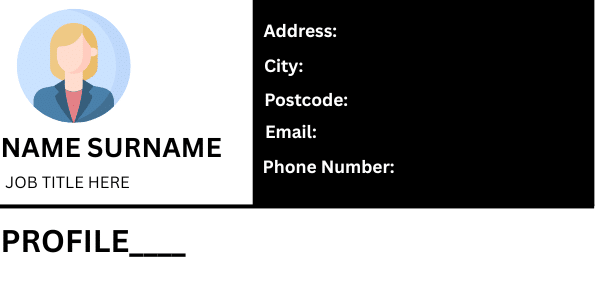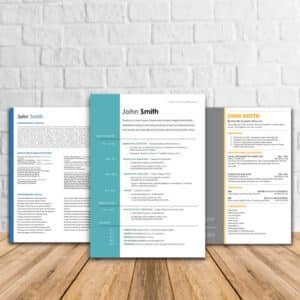A well-written character reference can significantly influence the outcome of a job application, rental agreement, academic opportunity, or even legal proceeding. But knowing how to write a character reference that genuinely supports someone, and stands out, is an essential skill.
Unlike a professional reference, which focuses on skills and experience, a character reference highlights an individual’s personality, reliability, and personal values. In this guide, you’ll learn what to include, how to structure it, and see real character reference examples that work.
What Is a Character Reference?
A character reference (sometimes called a personal reference) is a formal letter written by someone who knows the individual well on a personal level. It provides insight into the individual’s moral character, attitude, and behaviour.
Typically, character references are written by mentors, teachers, family friends, colleagues, or community leaders, not by immediate family members or employers.
When Are Character References Needed?
Character references are often requested in the following scenarios:
- Job applications (especially for roles involving trust or client interaction)
- University or college admissions
- Rental property applications
- Court proceedings
- Immigration or visa applications
- Volunteer or community-based opportunities
In these settings, a strong reference helps decision-makers gain confidence in the applicant’s integrity and behaviour.
How to Write a Character Reference: Step-by-Step
Here’s a step-by-step approach to writing an effective and sincere character reference:
Begin with Your Contact Information
Include your full name, phone number, email address, and the date at the top of the letter.
Use a Formal Greeting
If you know the name of the person reading the letter, use it. If not, address it generally as “To Whom It May Concern.”
Introduce Yourself
State your name, occupation, and how you know the individual. Mention how long you’ve known them to establish credibility.
Example:
“My name is Rachel Turner, and I have known Samuel Wright for over six years through our local youth mentorship program in Leeds.”
Describe the Person’s Character
Include 3–4 core traits such as honesty, dependability, empathy, or leadership. Avoid vague compliments and back your claims with sincerity.
Share a Specific Example
Include a brief story that demonstrates one or more of the qualities you’ve mentioned. A real-life scenario adds credibility and impact.
Example:
“Last year, when our community centre faced unexpected closures, Samuel took initiative and helped coordinate virtual mentoring sessions, showing responsibility and dedication.”
Offer a Strong Recommendation
Close with a positive endorsement and invite the recipient to reach out for more information if needed.
General Character Reference Example
Here is a simple and adaptable character reference example for general use:
Your Name]
[Your Address]
[City, Postcode]
[Email Address]
[Phone Number]
[Date]
To Whom It May Concern,
I am writing to provide a character reference for [Person’s Full Name]. I have known [First Name] for [length of time] as a [relationship], and I can confidently vouch for their integrity, honesty, and positive character.
Throughout our relationship, [Name] has consistently demonstrated traits such as kindness, responsibility, and empathy. I believe they would be an asset in any setting. For example, [brief story or example].
I fully support their application and am happy to provide further information if needed.
Sincerely,
[Your Name]
Tailored Character Reference Examples
For a Job Application
“[Name] is a dependable and proactive individual who demonstrates professionalism in all aspects of their life. I have no doubt they will bring great value to any team.”
For a Rental Application
“[Name] has always shown respect for property, neighbours, and rental terms. They are tidy, responsible, and easy to communicate with.”
For a Court Matter
“In all the years I’ve known [Name], they’ve shown genuine remorse for their actions and a clear desire to make positive changes in their life. They are active in their community and focused on self-improvement.”
Key Tips for Writing an Effective Character Reference
When you’re learning how to write a character reference, keep the following tips in mind:
- Be honest – Do not exaggerate or include anything untrue. Sincerity is powerful.
- Be clear and concise – Keep it to one page and avoid overly complex language.
- Use professional language – Even if it’s a personal relationship, keep the tone formal.
- Tailor the content – Match the tone and focus of the letter to the situation it supports.
Common Mistakes to Avoid
Avoid these pitfalls when writing a character reference:
- Using vague praise like “nice person” without examples
- Writing too informally or casually
- Making it overly long or off-topic
- Forgetting to include your contact information
Final Thoughts
A strong character reference letter can make a real difference in someone’s personal or professional life. Whether you’re helping a friend apply for a job, secure housing, or attend university, the words you write offer reassurance and support.
If you’re unsure where to begin, use the character reference examples above as a starting point. Make your reference personal, sincere, and specific to the individual’s strengths. And remember, knowing how to write a character reference is a valuable skill that reflects not just on the person you’re writing about, but also on you as the writer.




